The mind works in funny ways. How do you link the words “Naomi Osaka” and “Open Championship at Royal St George’s golf club?”
Well, mostly the connection arose due to the fuss caused by Osaka, winner of four Grand Slam Tennis tournaments, multi-sponsored, rich and famous, when she opted out of her media obligations at the French Open.
She didn’t like, apparently, having to front up to media and answer questions about her form and experiences on clay courts and anything else about which they were curious.
A competitor who brings the requisite ruthlessness to the task of beating all in front of her in a series of winner-takes-all matches at the biggest tournaments in Tennis did not want to engage in the media part of her job on that occasion.
Then, once a storm of controversy arose, she decided to withdraw totally from the tournament. She also announced a week later she would not play in the Berlin Tournament. In between, Osaka told her followers on social media that she had suffered from depression since she was 18.
We have to accept her word on that. However, she managed to get to the top of her profession over the last five years while dealing with whatever mental challenges assailed her on and off the court.
What changed? Who knows? Either way, the problem now is that the woman who wanted to avoid the media due to her mental and emotional sensitivity walked herself into a new level of public scrutiny.
And no, I’m not picking on Osaka either as a player or because she’s a woman. It’s gender-neutral here, and if it had been, for example, Rafa Nadal making the same decisions as her, the same questions would arise. If Osaka needs help, I hope she gets well and can to return to her best without being derailed by internal anguish.
Mental suffering can be a killer, literally. Full-blown depression causes horrible damage to individuals and families. The most vulnerable are being ignored in our society because Covid-19 has wreaked havoc on support services for those whose lives are crumbling due to the job losses, isolation and fear caused by everything that has happened in the last 18 months. The issue for me is perspective.
Nurses, doctors, hospital porters, cleaners, shop assistants, unemployed, those with physical and mental challenges don’t have the choice of opting out of the bits of their lives that do not suit them.
A 20-30 minute chat in front of a group of journalists who basically only want to see you play your best, entertain the fans, provide good copy and help make you richer than you are already, is no torture chamber.
Which brings me to Royal St George’s, and The Open. In a sports journalism career that started in 1972, I have always appreciated the time given by sports performers to help us do our job. I particularly admired the men and women who came before the microphones and cameras after suffering very public defeat and spoke to the public via the media.
Greg Norman at The Masters in 1996 was a prime example. He had just been smashed by Nick Faldo’s remorseless grinding of Greg’s seven shot lead into the dust to take the Green Jacket – and still, Norman sat there and spoke about the events of a traumatic day.
The Great White Shark displayed grace and courage, just as he and countless sportsmen and women have done since professional sport was invented. One of those who impressed me greatly was someone you’ve never heard of – Charles Challen, professional golfer from Bracknell, Berkshire, in England.
Challen came through the rigours of qualifying to tee it up in The Open Championship of 2003 at Royal St Georges. A pro since departing the amateur ranks with a plus-two handicap in 1996, this was the highlight of his career. Not a lot had gone his way up to then but there he was, aged 28, wearing a competitor’s badge in the oldest Major of them all.
In practice, the Englishman played with Padraig Harrington, Jesper Parnevik and Kenny Perry. Their advice to him was to relax and enjoy the whole experience. Unfortunately, Challen found it hard to enjoy anything on day one which ended with darkness halting play before he and five other players could finish the 18th hole.
They had to come back at 8.30am on the Saturday morning to complete their first round and embarked on round two at 11am. By then Challen had signed for an 86 for his opening 18 holes, 16-over par. It was to get worse. His second round was 87 for a total of 173, 33-over par and dead last after 36 holes.
It was a horrendous score for the Challenge Tour player but where superstars would have gone off to sulk, Charles bravely faced the media.
When you see somebody post such a score and watch it developing like a car wreck in slow motion, it is horrible, but also strangely fascinating. That’s why there was a small group of media folk waiting to interview Charles where other, better known professionals were ignored.
A tall, strongly-built lad, the English golfer looked slightly bemused when asked by a press officer to give an interview. It was probably the last thing he expected, and would certainly have been low on his list of things to do after scoring 33-over par but he didn’t flinch.
“Today I just tried my best,” said Challen. “I was nervous, very nervous in the first round. It wasn’t much fun playing in winds of up to 38 miles an hour. Airplanes struggled to land in that wind so what chance had we playing golf?
“And that first fairway. It’s narrow enough but looking down at it, you just see it getting narrower. It wasn’t my tee shots that were poor. It’s more my irons were dreadful, and my chipping and my putting. I was disappointed with myself. I felt going into it I could qualify and go on to do well, but there’s always next year.
“This was my first Major and hopefully it won’t be my last. I wouldn’t have missed it for the world. I know there are a lot of people who would have swapped places with me and I had a good time.
“I did enjoy it more in the second round. I was more relaxed. The big crowds took some getting used to, but they were great too. It didn’t matter how you were scoring. They clapped anyway.
“I know I’ve a lot to learn. I’ll probably get a few lessons over the next few days and then back on the Challenge Tour, but tonight I’m going home and I’m going to have more than a few drinks!”
Sadly, it never got better for Challen. He played only two more events, both on the Challenge Tour, and missed the cut in each of them before departing the Tour scene later that year.
In total he played 11 European Tour events and 97 times on the Challenge Tour. He did, however, deserve kudos for facing the media questions that day in 2003 at Royal St George’s.
As a footnote, the bad news is that in the five Opens held at Sandwich since 1981, Challen’s 173 total remains the highest 36-hole score. Next worst was Ian Lee, a pro from Wigan, on 172, (91, 81), for 32-over par in that ’81 Open. Ouch!

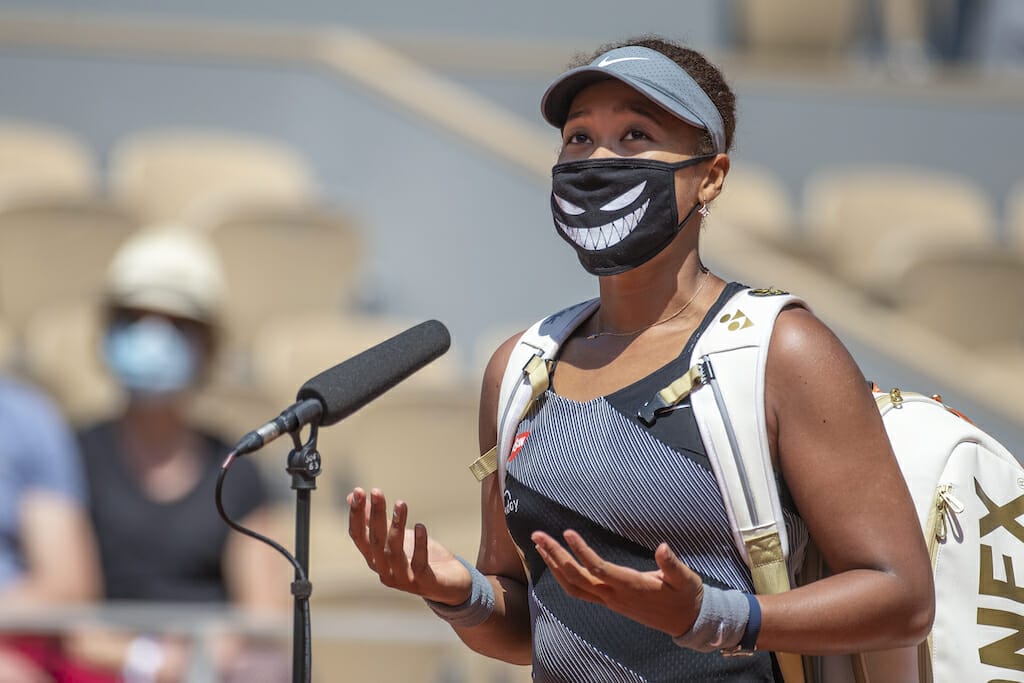



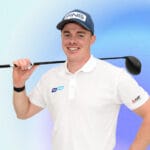




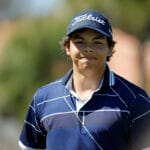




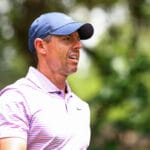
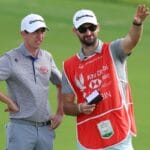

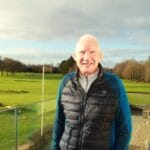
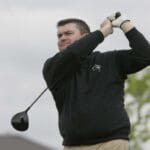




Leave a comment